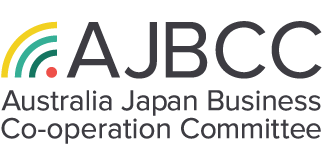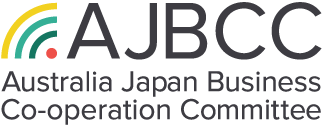31 May Japan’s Roadmap – Opportunities for Australia?
Last year Japan’s Cabinet Office reviewed the progress on defined areas of its Future Investment Strategy – 未来投資戦略 – which it had announced in 2018 and to date has convened 35 meetings with senior bureaucrats and business leaders to evaluate various aspects of the strategy. The most recent meetings have covered topics such as reforms of work style, education, improving open innovation, developing the cashless society, and achieving progress on Sustainable Development Goals (SDG).
The original strategy outlined the areas in which it wished to see future investment leading to an increase in the country’s GDP growth. Importantly, this plan was anchored in Japan’s Society 5.0 strategy through which Japan hopes to overcome social challenges such as the decrease in its population, the aging society and environmental issues. The strategy envisages a super-smart society which incorporates innovation created by the information society spanning both industry and social life.
There are 6 areas which have particular relevance to Australia and might provide business opportunities: autonomous driving; medical records; new energy; fintechs; agtech; and startups.
- Autonomous driving transportation services will be introduced in Japan during this year in order to help with the transportation of elderly in underpopulated areas. The Government hopes to introduce autonomous driving transportation services in over 100 locations by 2030 mitigating the effects of an aging society as well as the supply of drivers.
- Medical record sharing brings both society benefits and more efficient health expenditure. Within the healthcare field, Japan is looking to digitise, connect, and share medical data that is now dispersed in various hospitals by 2021. Other regulatory adjustments include the Government amending the medical practitioners’ law that will clarify the use of AI in diagnosis and treatment.
- Hydrogen energy technology is a major area under development in order to transform Japan into a hydrogen based society. Australia is a participant in this process with a pilot hydrogen plant in Victoria.
- Fintech – especially the use of blockchain – is seen as an area of strong current interest. Historically, Japan has a long culture of being a retail cash society or for business the use in previous times of a promissory note system. The aim of moving Japan to a cashless society is an area where Australia has detailed experience. Defined as the yen value share of card transactions of total consumer spending, the goal is to achieve 40% cashless transactions by 2025. This stood at 21% in 2018.
- Japan would like to implement smart agriculture by 2025, which consists of use of sensor/big data and AI providing support. Whilst the focus of this is a policy measure to boost Japan’s exports of agricultural products, a huge change in direction from that sector’s history of heavy protection, there are obvious business opportunities to use smart agriculture overseas. Already in Australia, there have been examples of R&D collaboration in this area.
- As with many countries, Japan has decided to back the promotion of start-ups. Aspirationally, the policy seeks to have at least 20 start-ups with a market capitalisation of one billion dollars each by 2023. In order to reach this goal, the Government has created the J-Startup program administered by JETRO, to nurture their development. Tax incentives include the encouragement for large companies to receive a tax deduction for their investments in startups. The target company has to be an unlisted one having been established less than 10 years and the large company would receive an income tax deduction of 25% on an investment of 100 million yen – about A$1.5m. Similar benefits would apply for angel investors and through these initiatives, Japan looks to stimulate the development of start-ups.
For large Japanese companies, there are still hurdles to be overcome. The challenges that they face in terms of their interaction with start-ups can be identified as: (a) the length of time it takes those larger companies to conclude a contract (b) the decision to proceed is often slow or late and (c) their corporate provisions such as confidentiality requirements are overly strict.




